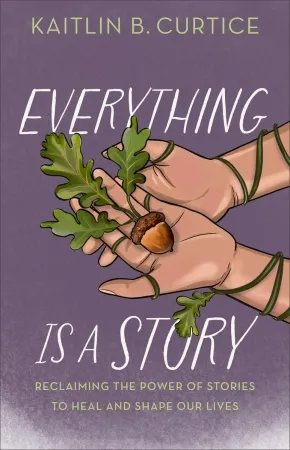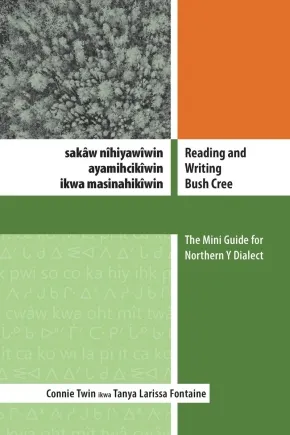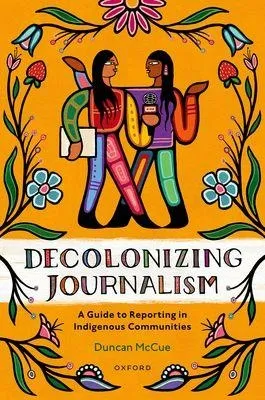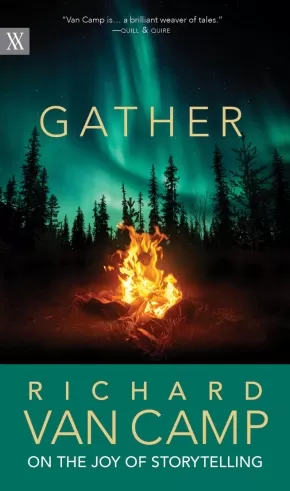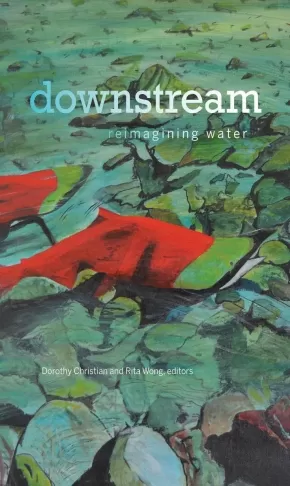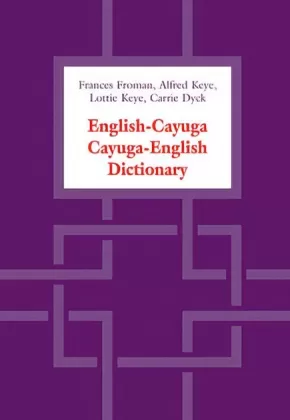Writing
Synopsis:
The groundbreaking Indigenous style guide every writer needs.
The first published guide to common questions and issues of Indigenous style and process for those who work in words and other media is back in an updated new edition. This trusted resource offers crucial guidance to anyone who works in words or other media on how to work accurately, collaboratively, and ethically on projects involving Indigenous Peoples.
Editor Warren Cariou (Métis) and contributing editors Jordan Abel (Nisga’a), Lorena Fontaine (Cree-Anishinaabe), and Deanna Reder (Cree-Métis) continue the conversation started by the late Gregory Younging in his foundational first edition. This second conversation reflects changes in the publishing industry, Indigenous-led best practices, and society at large, including new chapters on author-editor relationships, identity and community affiliation, Two-Spirit and Indigiqueer identities, sensitivity reading, emerging issues in the digital world, and more.
This guide features:
- Twenty-two succinct style principles.
- Advice on culturally appropriate publishing practices, including how to collaborate with Indigenous Peoples, when and how to seek the advice of Elders, and how to respect Indigenous Oral Traditions and Traditional Knowledge.
- Terminology to use and to avoid.
- Advice on specific editing issues, such as biased language, capitalization, citation, accurately representing Indigenous languages, and quoting from historical sources and archives.
- Examples of projects that illustrate best practices.
Additional Information
208 pages | 5.50" x 7.50" | Paperback
Synopsis:
Stories are alive--and shape our personal and collective identities, for better and worse.
In Everything Is a Story, award-winning Indigenous author Kaitlin B. Curtice considers how stories take root in our lives like an acorn becoming an oak tree. Following a story's life cycle, Curtice explores how narratives shape both our inner lives and broader communities. Which stories should we pass on to future generations--and which can we finally let go?
This book invites readers to explore the power of story to liberate or limit, to build compassion or create division. With gentle insight that speaks to people across the spiritual spectrum, Curtice guides us through the art of storytelling as a path toward healing and connection.
With contemplative poetry woven throughout and a foreword by Simran Jeet Singh, Everything Is a Story offers a hope-filled framework for reshaping our lives by reclaiming stories of courage, wholeness, and deep-rooted compassion.
Reviews
"A beautiful book about the stories that make us who we are and connect us to the earth, the cosmos, and one another."- Eboo Patel, founder and president, Interfaith America; author of We Need to Build: Field Notes for Diverse Democracy
"As most good communicators know, we best understand our world not through data or evidence or reason but mostly through stories. That's why this is such a potentially powerful book for those who read it!" - Bill McKibben, author of Here Comes the Sun
Educator Information
Table of Contents
Foreword by Simran Jeet Singh
As We Begin
Part 1: Seed
1. The Origins of Stories
2. Oak Stories
3. Stories Are Mirrors
4. The Shape of Stories
Part 2: Sprout
5. Gathering Stories
6. Stories of Faith and Religion
7. Returning to Our Body's Stories
8. A Maze of Stories
Part 3: Sapling
9. Stories of Aging and Happiness
10. Stories We Tell About One Another
11. Stories of Myth and Othering
12. Stories of Sports and Exploration
Part 4: Mature Tree
13. Stories Are Labels
14. Stories of Land and Food
15. Stories Told in Public
16. Stories of Belief and Letting Go
Part 5: Dropping Seeds
17. Interfaith, Expansive, Futuristic Stories
18. Merging Stories
19. Stories for Healing
20. The Future of Storytelling
Additional Information
208 pages | 5.50" x 8.50" | Hardcover
Synopsis:
A Vital Resource to Preserve, Teach, and Live the Bush Cree Language
Reading and Writing Bush Cree is a heartfelt, practical, and approachable guide for fluent speakers and Cree language educators who want to learn to read and write sakâw nîhiyawîwin—Bush Cree, or the Northern Y dialect. Written by Connie Twin, a first-language speaker from Bigstone Cree Nation in northern Alberta, and Tanya Fontaine, a dedicated Cree language learner and educator, this book bridges oral fluency with written literacy to support language preservation and revitalization.
Through personal stories and cultural insight, the authors guide readers into the structure of Cree grammar and the use of Standard Roman Orthography (SRO). With clear examples of both fluent and full written forms, this book also sheds light on how Cree sounds are represented in writing and highlights important differences between Northern and Southern Y dialects.
This is more than a how-to book—it’s a call to keep sakâw nîhiyawîwin alive for future generations.
Features
- A first-language speaker’s perspective on learning to read and write Cree
- Focus onsakâw nîhiyawîwin (Bush Cree / Northern Y dialect)
- A step-by-step introduction to Standard Roman Orthography (SRO) and syllabics
- Need-to-know basics of Cree reading, writing, grammar, and Y dialect variation
Additional Information
116 pages | 6" x 9" | Paperback
Synopsis:
Recent events including the Truth and Reconciliation Commission and the discovery of mass graves at the sites of former residential schools have brought increased coverage of Indigenous Peoples to Canada's mainstream media outlets. However, there is no guide for current and aspiring journalists to building respectful and reciprocal relationships with Indigenous people and communities when researching and sharing their stories. Written by a leading Indigenous journalist, Duncan McCue, specifically for journalism students in Canada, Decolonizing Journalism delivers practical, up-to-date advice in a guidebook-like text that students will use throughout their studies and careers. Readers will learn how to develop a critical consciousness when engaging with and reporting on Indigenous communities, and will draw insights into the histories, processes, and obstacles central to decolonizing journalism from exclusive interviews with 9 leading Indigenous journalists.
Educator Information
Decolonizing Journalism guides students through building critical consciousness vis-à-vis Indigenous people and communities, teaches them how to apply their journalistic skills and minds to working with communities, and offers 9 exclusive interviews with leading Indigenous journalists and podcasters in Canada and the United States.
With this text, students will gain insight into the histories, processes, and obstacles central to decolonizing journalism and media from the inside out.
Table of Contents
A Brief History of Indigenous Relations in Canada
Chapter 1: At the Desk
Chapter 2: In the Field
Chapter 3: On the Air
Chapter 4: Teachings
4.1 Becoming Trauma-Informed – A Conversation with Connie Walker
4.2 Lessons in Humility – A Conversation with Waubgeshig Rice
4.3 “In Love With My People” – A Conversation with Mark Trahant
4.4 Northern Reflections – A Conversation with Juanita Taylor
4.5 Respect and Relationships – A Conversation with Tanya Taylor
4.6 In Pursuit of Truth – A Conversation with Karyn Pugliese
4.7 Punching Up – A Conversation with Tim Fontaine
4.8 The Need for Knowledge-Based Journalism – A Conversation with Merelda Fiddler-Potter
4.9 Asking Hard Questions – A Conversation with Tristan Ahtone
Conclusion: The Last Word
Appendix 1: UNDRIP Articles Relating to Media
Appendix 2: TRC Calls to Action Relating to Media
Appendix 3: OCAP Principles for Indigenous Research and Data Collection
Appendix 4: Residential School Apology
Additional Information
232 pages | 6.12" x 9.25" | Paperback
Synopsis:
Stories are medicine. During a time of heightened isolation, bestselling author Richard Van Camp shares what he knows about the power of storytelling—and offers some of his own favourite stories from Elders, friends, and family.
Gathering around a campfire, or the dinner table, we humans have always told stories. Through them, we define our identities and shape our understanding of the world.
Master storyteller and bestselling author Richard Van Camp writes of the power of storytelling and its potential to transform speakers and audiences alike.
In Gather, Van Camp shares what elements make a compelling story and offers insights into basic storytelling techniques, such as how to read a room and how to capture the attention of listeners. And he delves further into the impact storytelling can have, helping readers understand how to create community and how to banish loneliness through their tales. A member of the Tlicho Dene First Nation, Van Camp also includes stories from Elders whose wisdom influenced him.
During a time of uncertainty and disconnection, stories reach across vast distances to offer connection. Gather is a joyful reminder of this for storytellers: all of us.
Reviews
“Stories and storytellers are an important part of what makes us human. Van Camp’s stories, whether they feature light comedy, family discord and reconciliation or his vivid images of the legendary Wheetago monsters, revived by global warming and horrifically hungry for human flesh, are gifts to the reader.” —Vancouver Sun
“Van Camp is…a brilliant weaver of tales.” —Quill & Quire
Additional Information
162 pages | 5.00" x 8.50"
Synopsis:
downstream: reimagining water brings together artists, writers, scientists, scholars, environmentalists, and activists who understand that our shared human need for clean water is crucial to building peace and good relationships with one another and the planet. This book explores the key roles that culture, arts, and the humanities play in supporting healthy water-based ecology and provides local, global, and Indigenous perspectives on water that help to guide our societies in a time of global warming. The contributions range from practical to visionary, and each of the four sections closes with a poem to encourage personal freedom along with collective care.
This book contributes to the formation of an intergenerational, culturally inclusive, participatory water ethic. Such an ethic arises from intellectual courage, spiritual responsibilities, practical knowledge, and deep appreciation for human dependence on water for a meaningful quality of life. downstream illuminates how water teaches us interdependence with other humans and living creatures, both near and far.
Reviews
"Downstream stakes out a bold and creative claim to collaborative and cross-cultural eco-spiritual-neo-traditional knowing and, with it, new approaches to policy and action. A timely read that lends depth and resonance to some of the material and voices [in other books on the subject]." — Heather Menzies, Literary Review of Canada, June 2017
"This rich collection brings together the work of artists, writers, scientists, scholars, environmentalists, and activists, all focusing on the looming global water crisis. ... Writing styles vary from piece to piece throughout the book—poetic, personal, journalistic, and academic—but the shifts between each are well worth navigating for any reader interested in human futures on Earth."— Publishers Weekly, August 2017
"This collection of works successfully expands our knowledge of and experience with water by merging natural science, social science, arts, and humanities approaches to water. It offers new, innovative, and engaging ways to think about and experience water, especially as it relates to life and vitality."— Sara Beth Keough, American Review of Canadian Studies, November -0001
Educator Information
This collection of essays is useful for these course/subject areas or topics: Language Arts & Disciplines; Creative Writing; Indigenous Studies; Poetry; Environmental Studies; Environmental Humanities.
Table of Contents
Introduction: Re-storying Waters, Re-storying Relations / Rita Wong and Dorothy Christian
Part I: Contexts for Knowing and Unknowing Water
1. Planetary Distress Signals / Alanna Mitchell
2. Water / Lee Maracle
3. Interweaving Water: The Incremental Transformation of Sovereign Knowledge into Collaborative Knowledge / Michael D. Blackstock
4. Water and Knowledge / Astrida Neimanis
5. Excerpts from “a child’s fable” / Baco Ohama
Part II: Water Testimonies: Witness, Worry, and Work
6. Water: The First Foundation of Life / Mona Polacca
7. From Our Homelands to the Tar Sands / Melina Laboucan Massimo
8. Keepers of the Water: Nishnaabe-kwewag Speaking for the Water / Renee Elizabeth Mzinegiizhigo-kwe Bedard
9. Water Walk Pedagogy / Violet Caibaiosai
10. A Response to Pascua Lama / Cecilia Vicuna
Part III: Shared Ethical and Embodied Practices
11. Moving with Water: Relationship and Responsibilities / Alannah Young Leon and Denise Marie Nadeau
12. Bodies of Water: Meaning in Movement / Seonagh Odhiambo Horne
13. Upstream: A Conversation with Water / Cathy Stubington
14. Ice Receding, Books Reseeding / Basia Irland
15. Tsunami Chant / Wang Ping
Part IV: A Respectful Co-existence in Common: Water Perspectives
16. Listening to the Elders at the Keepers of the Water Gathering /Radha D’Souza
17. Coastal Waters in Distress from Excessive Nutrients / Paul J. Harrison
18. Bodies of Water: Asian Canadians In/Action with Water /Janey Lew
19. Permeable Toronto: A Hydro-Eutopia / Janine MacLeod
20. Saturate/Dissolve: Water for Itself, Un-Settler Responsibilities, and Radical Humility / Larissa Lai
21. Bring Me Back / Janet Rogers
Additional Information
300 pages | 6.00" x 9.00"
Synopsis:
The first comprehensive lexicographic work on Cayuga, an Iroquoian language spoken in southern Ontario at Six Nations of the Grand River, this dictionary, combines the work of Dyck, a professor of linguistics, and Froman, Keye, and Keye, all Cayuga language teachers at Six Nations. It contains over 3000 entries, including 1000 verb forms and many nouns never before printed; extensive cross-referencing, thematic appendices that highlight cultural references and provide 1600 further entries, and a short grammatical sketch complete this accomplished work.
Entries in the main dictionary are organized by bases, which will make the dictionary especially helpful to those learning Cayuga as a second language. The dictionary's accuracy and extensiveness will make it an indispensable reference not only to the Cayuga speaker and student, but also to other Iroquoian speakers, linguists, anthropologists, and historians of Indigenous Peoples.
Produced under the auspices of the Sweetgrass First Nations Language Council Inc.
Reviews
"The first extensive dictionary of Cayuga, this benchmark work documents the language in 3,000 entries and in word lists organized thematically in appendixes ... A valuable tool for linguists of Iroquoian languages and anthropologists, as well as those who study the Cayuga language. Summing up: Highly recommended."— R. Hanson, Choice
"A major milestone in Iroquoian studies and an extremely important tool in the preservation of the Cayuga language."— Blair A. Rudes, Department of English, University of North Carolina at Charlotte
Additional Information
786 pages | 6.88" x 9.73" | Paperback
Synopsis:
This is a book about words, but it’s equally about what pulses beneath them, what lies between the lines. It opens a path to the inner self and to the timeless wisdom deep within. By focusing on ten key spiritual words, Hering provides an elegant practice for readers to explore a greater intimacy with their spirituality, their soul, and their world.
Whether you approach this book primarily as a reader or a writer, you can open a rich correspondence with yourself and learn what your own heart has to say. Karen Hering offers a path of self-exploration and a contemplative practice of writing that engages memory and imagination, story and poetry, images and the timeless wisdom of world religions and mythology. It will open your ear to your own truths while opening your heart to the world around you.
Blending writing prompts, meditations, and stories, this book invites you to begin wherever you are and discover your own unique relationship with language, spirituality, and the world around you. The next chapter is yours to write, and Writing to Wake the Soul offers all you need to write it.
Synopsis:
A celebration of ten writers who have challenged stereotypes, told history from a perspective often silenced, and entertained millions of readers.
Included is author Louise Erdrich, whose novel Love Medicine was the first in an award-winning series about the lives of several generations of Ojibwa families. Sherman Alexie, author of the semi-autobiographical The Absolutely True Diary of a Part-Time Indian, went on to win the National Book Award. Tomson Highway broke new ground with his play The Rez Sisters. Joseph Boyden based his novel Three Day Road in part on his grandfather’s experience fighting in the First World War. N. Scott Momaday re-wrote the history of the American West with his book House Made of Dawn. Nicola Campbell drew on her family’s experience of residential schools to write the children’s books Shi-shi-etko and Shin-chi’s Canoe. Also included are Marilyn Dumont (A Really Good Brown Girl), Tim Tingle (Walking the Choctaw Road), Joseph Bruchac (Buffalo Song), and Maria Campbell (Half-breed).
The full list of writers profiled:
• Sherman Alexie (Spokane/Coeur d’Alene, Washington) - The Absolutely True Diary of a Part-Time Indian
• Louise Erdrich (Ojibwa, North Dakota) - Love Medicine (the Argus Series)
• Joseph Boyden (Cree/Métis, Ontario) - Three Day Road
• N. Scott Momaday (Kiowa/Cherokee, Oklahoma) - House Made of Dawn
• Marilyn Dumont (Cree/Métis, Alberta) - A Really Good Brown Girl
• Tomson Highway (Cree, Manitoba) - The Rez Sisters
• Joseph Bruchac (Abenaki, New York State) - Buffalo Song
• Maria Campbell (Métis, Saskatchewan) - Halfbreed
• Nicola Campbell (Interior Salish/Métis, Alberta) - Shin-chi’s Canoe
• Tim Tingle (Choctaw, Texas) - Walking the Choctaw Road
Educator & Series Information
This book is part of the First Nations Series for Young Readers. Each book is a collection of biographies of First Nations, Métis, and Inuit women and men who are leaders in their fields of work, in their art, and in their communities.
For ages 9-14.
Additional Information
128 pages | 6.00" x 9.00"
Synopsis:
Ideas, exercises, and encouragement for teachers and writers of all ages
Award-winning author Carolyn Coman beliees that the essence of good writing, no matter the genre, is the ability to craft a solid story. In this innovative book, Carolyn provides advice, strategies and inspiration focusing on the key elements of stories: character development, plot, voice and dialogue, point of view, and place and time. Full of tips, exercises, and encouragement, this straightforward guide will help make the writing process less intimidating for students and teachers alike.




